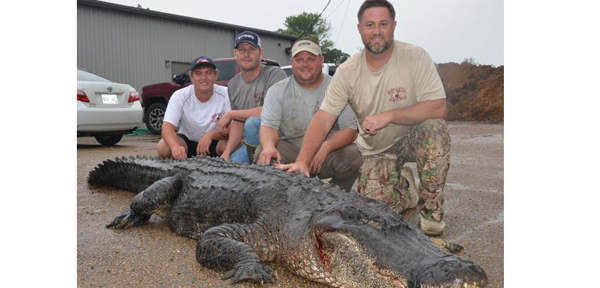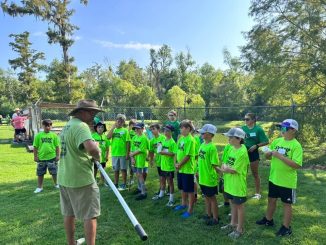
Alligator hunting seems to gain in popularity each and every year, and those who hunt them both recreationally and commercially are hitting the water as the season is finally back in full swing.
On southeastern WMAs (Wildlife Management Areas), hunters are annually permitted to start hunting on the Saturday following the official opening of alligator season, which annually kicks off the last Wednesday of August.
Ten fortunate hunters earned the right to hunt the local grounds of the Salvador/Timpkin area when they were chosen from a group of roughly 70 applicants in the Louisiana Department of Wildlife and Fisheries annual alligator lottery.
Ten applicants per year are chosen for the lottery locally for the Salvador/Timpkin area, which are aimed at addressing the public’s desire to hunt and harvest a few alligators without impacting the commercial harvest. The program, which began in 2010, has typically averaged between 40 to 80 applicants in recent years. All applicants meeting requirements were entered into a randomized computer drawing and the selected hunters were notified by mail.
Thirty tags were distributed among the 10 lotto winners, each of those hunters permitted to harvest up to three alligators. With the lottery, LDWF selects eligible alligator hunters that will be allowed to target five coastal and nongame resources division management areas, 15 wildlife division WMAs, one U.S. Army Corps of Engineers property and 25 public lakes for the alligator harvest season.
Shane Granier, biologist manager of the management areas in southeastern St. Charles Parish, said that the lottery winners will have an extra weekend to hunt because of how the dates for teal hunting season fell this year — lottery hunters are not allowed to hunt during teal season.
“That was pretty good for the lottery guys,” Granier said. “Everything else stays the same, though. It’s the same number of tags and hunters.”
The lottery hunters largely are hunting recreationally, Granier said. Meanwhile, tags were distributed to eight hunters for commercial purposes. Each received 60, totaling 480 in total.
Granier said there’s been an expectation expressed by hunters that the sale price of the alligators will be down this year in comparison to past years. Anticipating that downturn in price, the LDWF lifted the usual requirement that commercial hunters fill all of their tags. Under normal circumstances, hunters would have to pay the department a percentage for each tag that wasn’t filled.
“There are probably going to be fewer alligators taken (locally), and that’s probably pretty representative of the rest of the state,” Granier said.





Be the first to comment